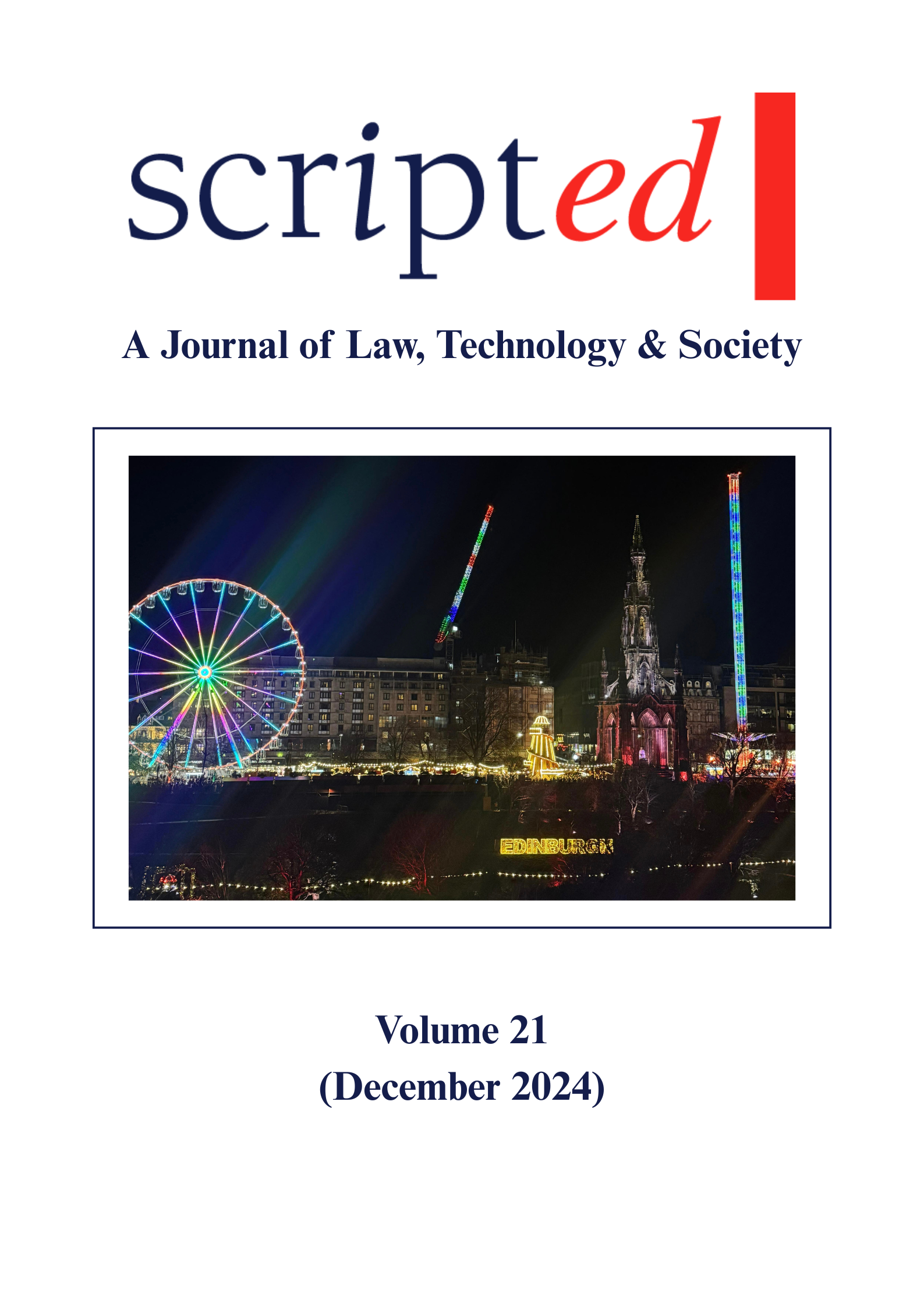Risky Business: Freedom of Expression vs. Harmful Content in Ireland’s Online Safety and Media Regulation (OSMR) Act
DOI:
https://doi.org/10.2218/scrip.210024.40Keywords:
Online safety, freedom of expression, political expressionAbstract
This article applies a critical perspective to provisions of Ireland’s Online Safety and Media Regulation (OSMR) Act which may undermine the right to freedom of expression. This article narrows its focus to specific provisions of this legislation which may be used to restrict access to harmful—but potentially legal—online communications. Special focus is on potential application of these provisions to offensive political commentary and associated risks to the right to freedom of expression. This article begins by providing an overview of the legislative development and context preceding the OSMR Act. Focus is not only on the justifications for this legislation but also on analogous domestic legislative frameworks—specifically the United Kingdom’s Online Safety Act—which has seen proposals for legally binding obligations for online media platforms to restrict access to harmful but legal online communications. Focus then shifts to the relevant provisions of Ireland’s OSMR Act surrounding harmful online communications under Part 11 of this legislation. Identifying how specific obligations may be used to restrict access to offensive political communications online, this article then maps standards surrounding the right to freedom of expression which are instructive in this context. Drawing exclusively from the analytical framework of Article 10 of the European Convention on Human Rights (ECHR), key focus here is on relevant jurisprudence of the European Court of Human Rights (ECtHR) in case law wherein the Strasbourg Court has examined the right to disseminate polemic statements in political environments under the Article 10 ECHR framework. Focus is also given to relevant jurisprudence wherein the ECtHR has demonstrated reluctance to endorse restrictions on access to lawful online communications. Filtering these standards, this article concludes by assessing how the operationalisation of Ireland’s OSMR Act may require—or indirectly encourage—restrictions on access to legal communications in a manner that may contravene the right to freedom of expression under Article 10 ECHR. Accordingly, this article provides timely analytical insights regarding the extent to which current and future online safety measures under the OSMR Act’s framework are likely to ensure compatibility with the right to freedom of expression.
Downloads
Published
Issue
Section
License
Copyright (c) 2024 Ethan Shattock

This work is licensed under a Creative Commons Attribution-NonCommercial-NoDerivatives 4.0 International License.






